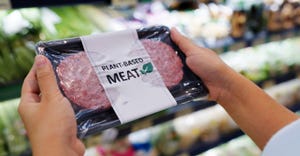The majority of large U.S. public universities were incentivized to boost beverage sales, and some received more money for selling soft drinks than water, according to a new study.

A new study reviewing contracts between U.S. universities and Coca-Cola and Pepsi showed the beverage giants paid as much as $2.9 million a year to universities who partnered with them to promote their beverages.
The vast majority of contracts offered payment incentives for selling more beverages. In some cases, the schools received more money for selling soft drinks compared to bottled water.
The study, published in the Journal of American College Health, reviewed “pouring rights” contracts from universities across the United States to determine how incentives may be impacting sugar-sweetened beverage (SSB) sales at universities. Pouring rights contracts are exclusive marketing agreements with venues and institutions used by beverage companies like Coca-Cola and Pepsi to promote their products.
The study was conducted by the Center for Science in the Public Interest (CSPI) and the Johns Hopkins Bloomberg School of Public Health.
For the study, researchers used public records requests to obtain contracts “offering rights to sell, market, promote and/or advertise beverages” on campus from 131 of the 143 public universities in the U.S. with at least 20,000 students. Of those, 124 universities met the study’s criteria for inclusion; 57 were contracted with Coca-Cola only, 58 were contracted with Pepsi only, and nine were contracted with both.
Almost all of the contracts (95%) contained at least one provision that tied payments to sales volume. The most common incentive to boost sales was commissions, found in 79% of contracts. Other types of incentives included rebates and payments that were triggered once a minimum amount of product was sold.
One in seven contracts (15%) provided schools with higher per-unit incentives for selling soft drinks compared to bottled water. Only three contracts provided a lower commission rate for selling soft drinks compared to water.
“We found that universities can earn hundreds of thousands of dollars (some even millions) per year from volume-based payments, providing substantial incentives to maximize product sales,” researchers of the study wrote. “Several universities received greater incentives to sell SSBs than bottled water, potentially incentivizing the promotion of SSBs or disincentivizing university-led efforts to reduce SSB consumption on campus.”
Researchers also studied the overall value of the pouring rights contracts.
Some contracts provided to researchers had redactions or were missing information that could be used to determine the value of the contracts. Thirty-eight contracts were complete and included the information needed to assess their overall value to the universities.
According to those contracts, universities received about $900,000 a year, on average. One contract was valued as high as $2.9 million annually. Nearly a third of a contract’s estimated total revenue, on average, came from incentives for higher sales, per the contracts.
CSPI, a consumer advocacy group and one of the groups leading the study, criticized universities that partner with beverage manufacturers to promote products and, namely, SSBs.
“There is a growing movement to remove sugary drink marketing from college campuses. Students want to see less marketing on their campuses—especially for unhealthy products,” Eva Greenthal, senior science policy associate at CSPI and lead author of the study, said in a press release. “Students are also pushing their administrations to pursue strong commitments to sustainability, including by removing single-use plastics from campus. Schools that are locked into decade-long contracts with bottled beverage companies will struggle to meet those commitments.”
SSBs are the top source of added sugars in Americans’ diets and contribute nearly a quarter (24%) of Americans’ daily added sugars intake, according to the 2020-2025 Dietary Guidelines for Americans. Too many added sugars can lead to serious health problems such as obesity, type 2 diabetes and heart disease, the CDC reported.
Rachel Adams joined Informa’s Health & Nutrition Network in 2013. Her career in the natural products industry started with a food and beverage focus before transitioning into her role as managing editor of Natural Products INSIDER, where she covered the dietary supplement industry. Adams left Informa Markets in 2019.
About the Author(s)
You May Also Like






